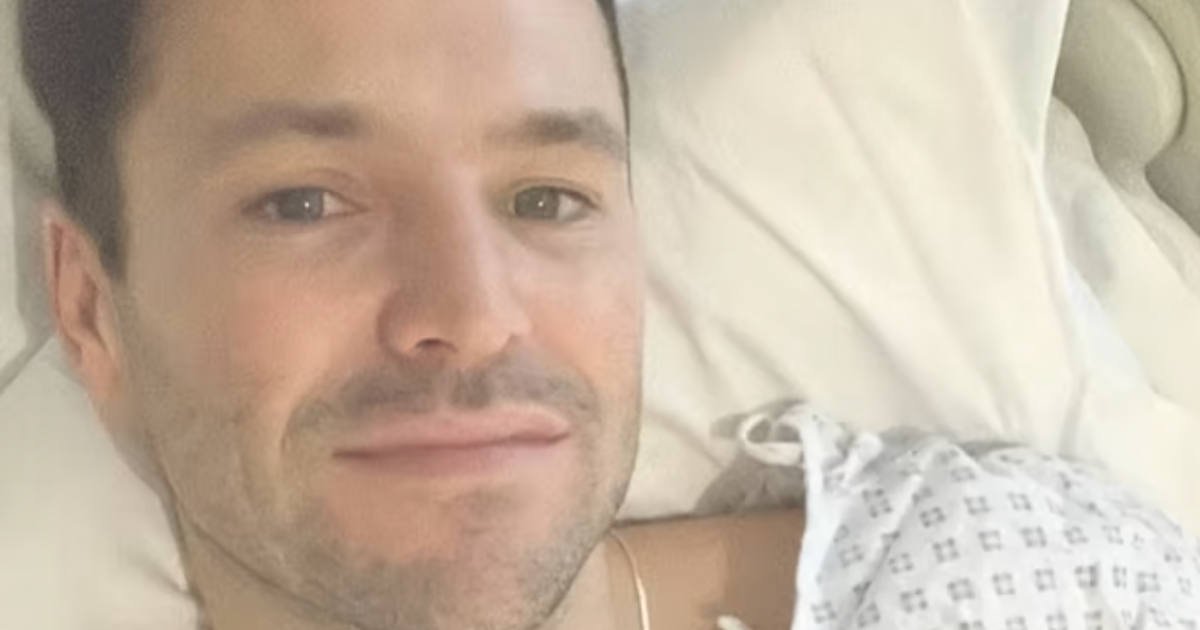Recovering From Surgery
- Former Extra host Mark Wright is feeling grateful that his cancer scare seven months ago was thankfully just thata scare
- After having a 12 cm tumor removed from his armpit (that was luckily benign), the British entertainment reporter and reality star has opened up for the first time about his surgery, the lingering side effects, and the lesson that he has learned since about his health.
- Having surgery to diagnoseor rule outyour cancer is critical for your doctor to have a large enough sample to provide the necessary information.
After having a (luckily benign) 12 cm tumor removed from his armpit, the British entertainment reporter and reality star has opened up for the first time about his surgery, the lingering side effects, and the lesson that he has learned since about his physical and mental health.
Read More
As far as the tough operation due to the awkward positioning of the lump, Mark says he chose his surgeon wisely, “because you can really mess the nerves up and, to be fair, even now down on my forearm, my skin stings a little bit,” he said. “And I have weird sensations and pins and needles sometimes.”
Despite the uncomfortable side effects, Mark is super grateful to be taking his health even more seriously these days.

“If you notice anything that doesn't look or feel quite right. Don't leave it,” he urged. “Nothing in life is more important than your health and well-being. Get checked, check yourself and make sure you take good care of yourself.”
Waiting on Biopsy Results
A biopsy tests a sample of tissue taken from your lymph node or another area, to see if it contains cancer. To rule out cancer, Dr. Elise Chong, medical oncologist at Penn Medicine, tells SurvivorNet. "We really need to see tissue under the microscope to make that diagnosis."
PreventionLimiting Your Risk
Doctors can perform a biopsy in one of a few ways.
Surgical Biopsy
In a surgical biopsy, the surgeon has to cut through the skin to remove a tissue sample, usually from a lymph node. In an excisional biopsy, the doctor removes the whole lymph node. In an incisional biopsy the doctor removes only part of the lymph node or tumor.
Having surgery to diagnoseor rule outyour cancer might sound frightening, but it's critical for your doctor to have a large enough sample to provide the necessary information.
You'll get medicine before the surgery to prevent you from feeling pain. If the node is deep inside your body, you may be asleep during the procedure. The doctor will make a small cut through your skin, remove the suspected lymph node or piece of a lymph node, and then close the opening with stitches. You may be able to go home on the same day.
Needle Biopsy
The alternative to a surgical biopsy is a needle biopsy. As the name suggests, it uses a needle to remove a tissue sample. You'll likely get a local anesthetic beforehand to numb the area of skin.
A needle biopsy can be done in one of two ways:
- A fine needle aspirate uses a very thin, hollow needle, which goes into your skin right above the lymph node. Then the doctor uses an attached syringe to pull out (aspirate) a small sample of tissue.
- A core needle biopsy uses a thicker needle to remove a slightly larger tissue sample. Your doctor might use an ultrasound or computed tomography (CT) scan to find the lymph node, especially if it is deeper inside your body.
"The difference is that a core needle biopsy is a very thin hollow needle where we're taking a much smaller sample of a lymph node or other organ that may have lymphoma in it, versus the needle is sucking out individual cells," Dr. Chong says.
Biopsy Isn't Fun but Can Put Your Mind at Ease
After the Biopsy
Once your biopsy is finished, your doctor will send your sample to a lab. There, a specialist called a pathologist will examine the cells under the microscope to see if you have lymphoma, and if so, which type you have.
Though a needle biopsy is less invasive than a surgical one, there is always a risk that your doctor won't be able to remove enough of a sample to get an accurate diagnosis.
So even if you can get away with a less invasive needle biopsy, you may have to undergo a surgical biopsy later for your doctor to give you a firm diagnosis. Before you go in for this test, make sure you understand what questions it can answer, and whether you might need further tests afterward.
Learn more about SurvivorNet's rigorous medical review process.


